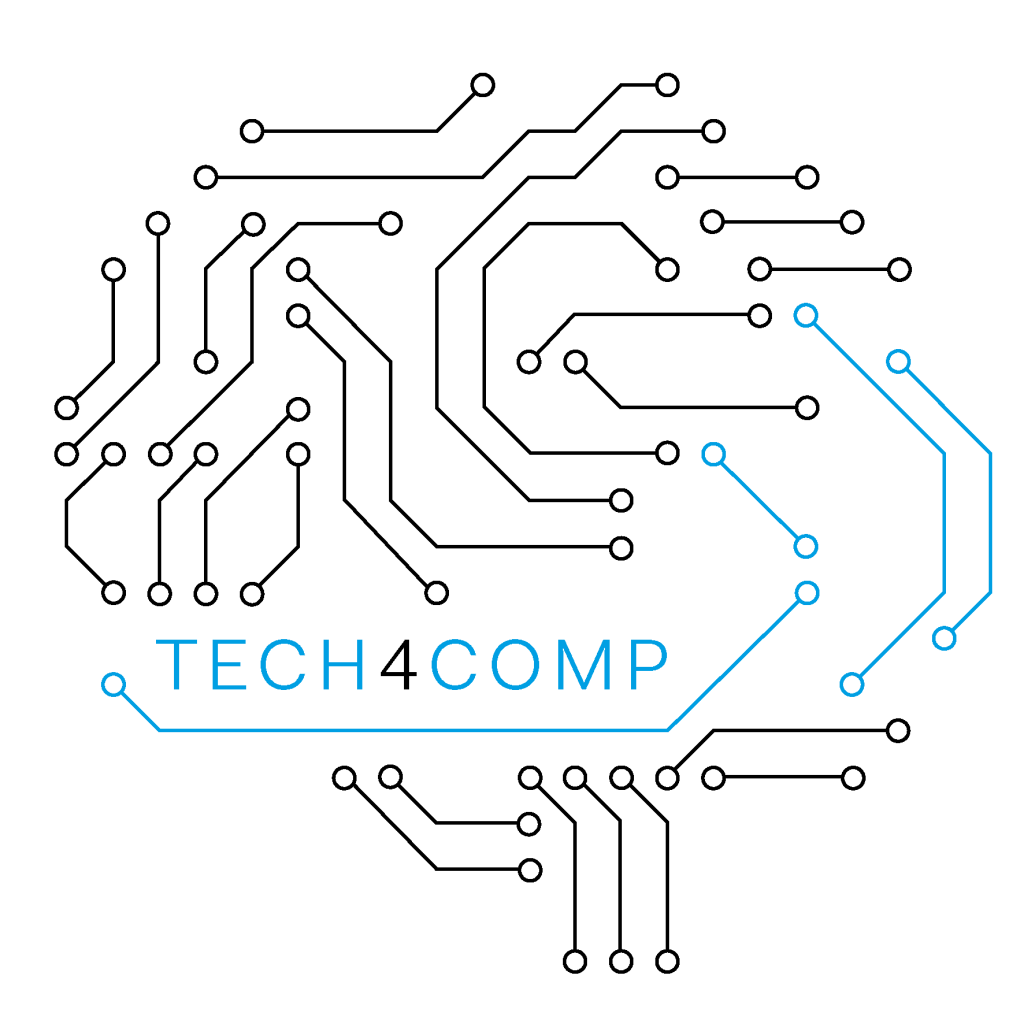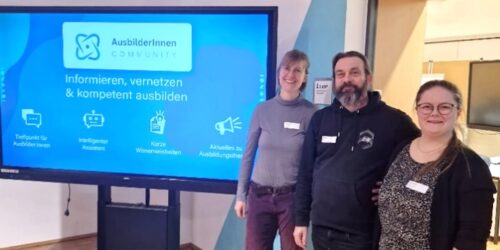More than marketing: Competence development for the real estate industry using virtual reality
Not only since a world-famous IT company started working intensively on a digital metaverse, Virtual Reality (VR) a trending topic in our society. One of the industries that is increasingly taking advantage of this technology is the Real estate industry. Michael Dahlems, a business administration student specializing in real estate management at the University of Applied Sciences, also discussed the status, background and prospects of VR applications in this area. IU International University of Applied Sciences (IU), in his Bachelor thesis on the subject “Virtual Reality in the Real Estate Industry – Analysis of Challenges and Application Potential”. Under the supervision of Prof. Dr. Helge Fischer (IU) he conducted six guided expert interviews with various specialists, such as an architect, a construction manager and a project manager. Among those interviewed was Jonathan Dyrna, a research associate at CODIP, who was involved in the research and development project Digital educational offerings in the real estate industry using virtual reality (DOmIcILE-VR) researches the didactic conception and organizational implementation of VR learning applications in educational institutions. Below you can read - with the kind permission of Mr. Dahlems - an excerpt from the interview with Mr. Dyrna.
 |
Jonathan Dyrna holds a Master’s degree in media and learning psychology from the Chemnitz University of Technology and has been working as a research assistant at CODIP since 2017. In DOmIcILE-VR He is – in close coordination with the project management and the subject didacticians from the Academy for Vocational Training (AFBB) and the media technicians and developers from the Dresden University of Applied Sciences (FHD) – primarily responsible for the media didactic conception as well as the educational theoretical connection and scientific evaluation of the developed, VR-supported learning scenario. |
(Michael Dahlems) What potential applications do you see for VR in the real estate sector?
(Jonathan Dyrna) For the real estate sector, I currently see two central use cases for VR. One is in the Marketing and dem Sales of real estate or rental propertiesMore and more providers are enabling complete digitization of apartments or entire buildings so that prospective tenants can conveniently view them online, for example as 360-degree views. According to a recent market study Companies in the real estate industry are increasingly relying on such VR offerings. Experts such as Prof. Dr. Hutzschenreuter (Technical University of Munich), predict, that VR-based sales processes will become the standard in the real estate industry by 2030I am a little more cautious myself, but I also expect the virus to spread further.
The second use case concerns the use in the EducationHere, virtual real estate can be used, for example, in training and further education to promote action skills for property valuations or - as in our case - apartment inspections and handovers. For a research project, for example, colleagues from Australia and Hong Kong have developed a VR learning application developed, with which learners should develop a basic understanding of developed parcels of land and also learn to make well-founded investment decisions for real estate and formulate appropriate recommendations for a (non-)purchase. A similar application is in our research project DOmIcILE-VR Here we have a virtual environment developed, with the help of which trainees and continuing education students should train, among other things, to correctly assess the condition of rental apartments in a legally correct manner and to properly record their assessment and to communicate it appropriately to the tenant who is moving out. Such approaches are very promising, but unfortunately there are still far too few of them. Scientists and practitioners from education and the real estate industry are working together to design and implement further use cases.
In your opinion, what opportunities result from the use of VR in the real estate industry?
 In my opinion, the opportunities lie in addition to the economic especially in didactic area. It is true that it initially involves costs for real estate companies to digitally prepare their properties for virtual viewings. However, once the preparation has been completed, resources can be saved. Since potential interested parties can first get a first impression of the property online, for example, and then decide on the basis of this whether they are interested in buying or renting, there is a high probability that fewer viewings carried out, which ultimately do not lead to a sale or rentalThis saves brokerage offices and administrations valuable working time.
In my opinion, the opportunities lie in addition to the economic especially in didactic area. It is true that it initially involves costs for real estate companies to digitally prepare their properties for virtual viewings. However, once the preparation has been completed, resources can be saved. Since potential interested parties can first get a first impression of the property online, for example, and then decide on the basis of this whether they are interested in buying or renting, there is a high probability that fewer viewings carried out, which ultimately do not lead to a sale or rentalThis saves brokerage offices and administrations valuable working time.
Resources can also be saved in the education sector. Using digital VR applications such as the learning environment we have developed Scenarios such as apartment inspections can be practiced flexibly in terms of time and location – even over long distances – by a theoretically unlimited number of learners at the same time, whose training would be considerably more complex without VR. I assume that very few property management companies or housing associations have sufficient capacity for their trainers to drive with the trainees to vacant or even partially furnished rental properties and practice inspections there. In addition, VR learning environments allow for a largely flexible configuration, so that the Rental properties, for example regarding the number of rooms or the defects present, can be continually adapted to new training requirements. This is also virtually impossible in reality.
From a didactic point of view, the advantage is that the learners to carry out the actions to be learned in VR environments Many real estate companies take their trainees to real acceptance or sales appointments, for example, where they can observe their experienced colleagues. From an educational point of view, however, passive observation, as well as purely theoretical consideration, rarely leads to the acquisition of skills that the active implementation of an action makes possible. Investigation by colleagues from Australia and Hong Kong also indicates a High learning benefits of VR applications for the real estate sector how our first resultsHowever, further research is needed here, such as comparative studies on different didactic approaches.
What risks do you see?
In my view, the main risks are technical reasonsLike any other technology, VR is susceptible to a certain degree of failure and requires continuous care and maintenance if it is to function as smoothly as possible in the long term. The majority of commercially available and financially affordable VR infrastructure does not yet achieve the same level of display sharpness and performance as realityEven slight blurring or delays in the display can lead to the user experiencing symptoms of the so-called VR disease similar to motion sickness. This can make learners experience a VR scenario less pleasant and distract them from the learning process. However, as this technology continues to develop rapidly, such limitations will hopefully become a thing of the past in the future.
What do you think is necessary to sustainably integrate VR technologies into companies?
In order to successfully integrate VR into a company in the long term, appropriate framework conditions created at various levels For me, the starting point here – as with any operational implementation of a new technology – is a Cost-benefit analysisFor example, it is important to consider what didactic advantages their introduction would bring and whether they are proportionate to the costs involved. In addition to the didactic and economic aspects, the socio-cultural circumstances and consequences The driving forces behind the implementation of technological innovations are often found at management level. In addition to financial savings, they hope to gain a reputation, which also has a positive economic impact. However, the medium- and long-term success of the introduction of VR technologies is mainly determined by the operational personnel level and the customer baseMiddle managers, trainers, prospective buyers or learners will only use VR technology actively and in a goal-oriented manner if they recognize its added value and sufficiently accept its implementation. If, on the other hand, they experience the new technology as a useless, additional burden or even excessive demand, then this has a negative impact on the prospects of success of this innovation. Therefore, companies should Take appropriate measures to increase transparency and acceptance and to support employees and customers, for example, by actively involving the operational level in their implementation decisions and strategies at an early stage and by creating suitable offers, such as gradual workshops and technical and media didactic support. Overall, the factors and processes that determine and influence the introduction of VR in companies are very comprehensive and complex. We have already published a simplified model developed and published, which we are currently continuously developing and refining. There is currently no end in sight for the VR trend in the real estate industry or for our research into it.
Further reading:
Dyrna, J. (2022). Virtual training for apartment acceptances: Development of a virtual reality learning scenario for property managers. Media Pedagogy: Journal for Theory and Practice of Media Education, 47, 172–195. https://doi.org/10.21240/mpaed/47/2022.04.09.X
Fischer, H., Arnold, M., Philippe, S., Dyrna, J., & Jung, S. (2021). VR-based learning and teaching. A Framework for Implementation of Virtual Reality in Formal Education. In L. Gómez Chova, A. López Martínez, & I. Candel Torres (Eds.), Proceedings of the 15th International Technology, Education and Development Conference (pp. 3304–3314). Valencia: IATED Academy. https://doi.org/10.21125/inted.2021.0694
Hutzschenreuter, T. & Burger-Ringer, C. (2018). Impact of Virtual, Mixed, and Augmented Reality on Industries, 2018. Research report. https://doi.org/10.14459/2018md1454069
Hou, H.C., & Wu, H. (2020). Technology for real estate education and practice: a VR technology perspective. Property Management, 38, 311-324. https://doi.org/10.1108/PM-08-2019-0046
Author: Jonathan Dyrna






